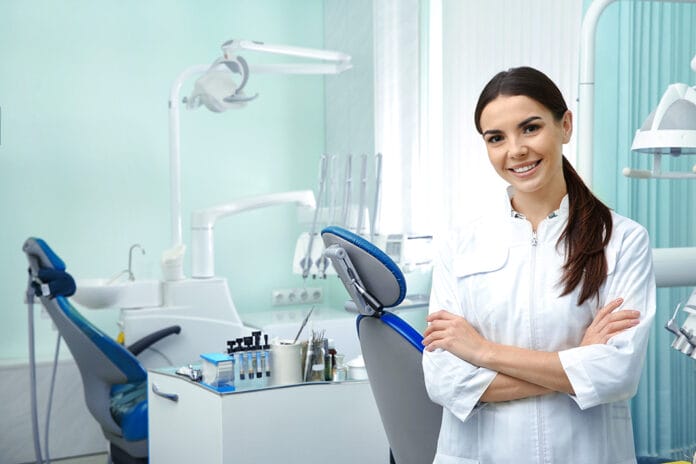Dental hygienists know the importance of preventing disease, but many experience burnout, either physically or emotionally. Accordingly, it is important for hygienists to practice mindfulness.
What is mindfulness?
Mindfulness can be practiced by anyone, anytime, or anywhere, even as a dental hygienist. Mindfulness is described as “a mental state achieved by focusing one’s awareness on the present moment, while calmly acknowledging and accepting one’s feelings, thoughts, and bodily sensations, used as a therapeutic technique.”2 Since dental professionals have busy schedules, mindfulness becomes essential to practice.
How does mindfulness affect dental professionals? According to the Centers for Disease Control and Prevention (CDC), health care workers are among the highest rates of suicide.1 Practicing mindfulness can decrease burnout, addiction, suicide, and bias, as well as improve teamwork, productivity, focus, creativity, and ergonomics. A systematic review concluded mindfulness “to be effective in increasing the well-being of those who practice it, leading to better mental health, self-care, and job satisfaction.”3
Tips for Practicing Mindfulness as a Dental Hygienist
Have a strong foundation ‒ Having a strong foundation starts by feeling safe and secure in your dental practice and daily life. Do you feel stable or constantly walking on eggshells in the office? If we do not have our basic needs met, we will not be able to practice mindfulness peacefully, and our minds will wander with worries.
Having a strong foundation as a hygienist can include planning for future retirement, morning huddles with the office to build a strong team dynamic, or packing a healthy lunch for work. An office that has mutual support, professionalism, teamwork, and are compassionate to one another influences everyone in the office. This includes the patient. Having our basic needs met releases worries while being able to spend more energy on our patients and career success.
What is one way you can improve your foundation practice if that either be your finances or other basic needs?
Be creative ‒ Hygienists create individualized treatment plans while developing relationships, and relationships are developed with patients and the entire dental staff. Practicing creativity can improve our dental hygiene practice by providing more opportunities for the hygienist and patients to improve. Implementing creative strategies for patients to improve their oral health, such as playing their favorite two-minute song while brushing their teeth or repeating a self-affirmation in their head while scaling.
Seek knowledge ‒ Practicing mindfulness during the workday can increase our knowledge by being aware of our strengths and weaknesses. For example, a daily journal might note something you learned and want to improve. It has increased my confidence to read past entries to see my progress ‒ recording times, accuracy, and patient comfort, for example ‒ while reminding me what I want to work on. Seeking growth opportunities ‒ attending continuing education courses, for example ‒ gives us power, self-esteem, and confidence.
Practice healing ‒ Being mindful about practicing compassion for ourselves, patients, and dental colleagues can increase healing in numerous ways ‒ forgiving a co-worker or validating a patient’s difficult time in their life, for example. Mindfulness can heal our bodies as we are more aware of posture, instrumentation grasp, or a dull instrument. We do not have the luxury of a mentor over our shoulder all the time, and it is our responsibility to be mindful of our areas of improvement.
Express yourself ‒ Practicing mindfulness as we express our thoughts and feelings can increase our compassion and confidence. Realizing how we are feeling at that moment can help us communicate in a professional manner without negative emotions impacting the conversation. For example, the best advice I got in dental hygiene school was to not express my frustrations to a patient, whether they are family or not. I had been concerned that the ultrasonic was not working. However, there is an appropriate time and place for expressing ourselves.
Being professional and mindful of how we communicate can boost how others listen and resolve complications quicker. Expressing worries in a kind manner or complimenting co-workers and patients can grow relationships.
Be a problem solver ‒ Dental hygienists often see the big picture for patients. We also need to see the big picture for ourselves by practicing mindfulness. If we are feeling body aches at the end of the day, we can either make a mental note or write it down to remind us. Focus mindfulness on those areas the next day to see if the body tenses up during certain moments.
For example, I wanted to improve my ergonomics. I noticed my right leg was sore after using the ultrasonic. I decided I would observe myself and document it at the end of the day. The next day I noticed I would tense up that leg when pressing the pedal. Every time I noticed myself doing it, I would relax. Since then, I have not been sore. I had not gone to a class for ergonomics, but being mindful of my body gave me the knowledge and power I needed.
Practice Awareness
Remembering and implementing the foundations of dental hygiene is easier said than done. For example, practicing mindfulness while scaling can improve ergonomics, clock positioning, and scaling techniques. This can be accomplished by staying present and aware of the body during each dental appointment versus daydreaming throughout the day. If you catch yourself daydreaming, observe your thoughts because it is mindfulness too.
Practicing mindfulness has influenced my growth as I practice dental hygiene. I have had fewer body aches, burnout, and negative effects. Prior to practicing mindfulness, my dominant hand would have severe pain, syncope from overdoing it, and showing my emotion with patients. My ergonomics, scaling techniques, energy level, professional relationships, and more have improved. Focusing on one mindfulness tip can have a butterfly effect.
Now Check Out the Peer-Reviewed, Self-Study CE Courses from Today’s RDH!
Listen to the Today’s RDH Dental Hygiene Podcast Below:
References
- Suicide rates by industry and occupation – national violent death reporting system, 32 states, 2016. (2020, January 23). Centers for Disease Control and Prevention. https://www.cdc.gov/mmwr/volumes/69/wr/mm6903a1.htm
- Mindfulness. (n.d.). Dictionary.com. https://www.dictionary.com/browse/mindfulness
- Jiménez-Picón, N., Romero-Martín, M., Ponce-Blandón, J. A., et al. The relationship between mindfulness and emotional intelligence as a protective factor for healthcare professionals: Systematic review. International Journal of Environmental Research and Public Health. 2021; 18(10): 5491. https://doi.org/10.3390/ijerph18105491












